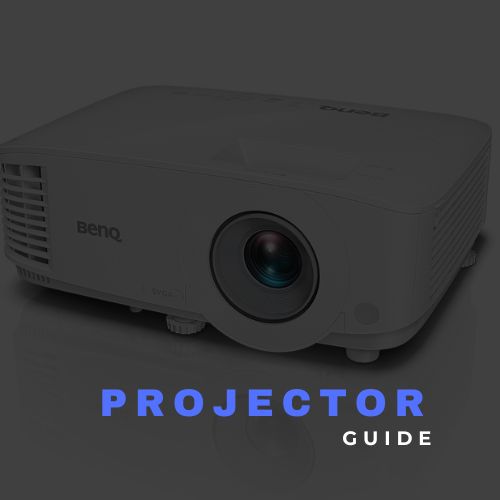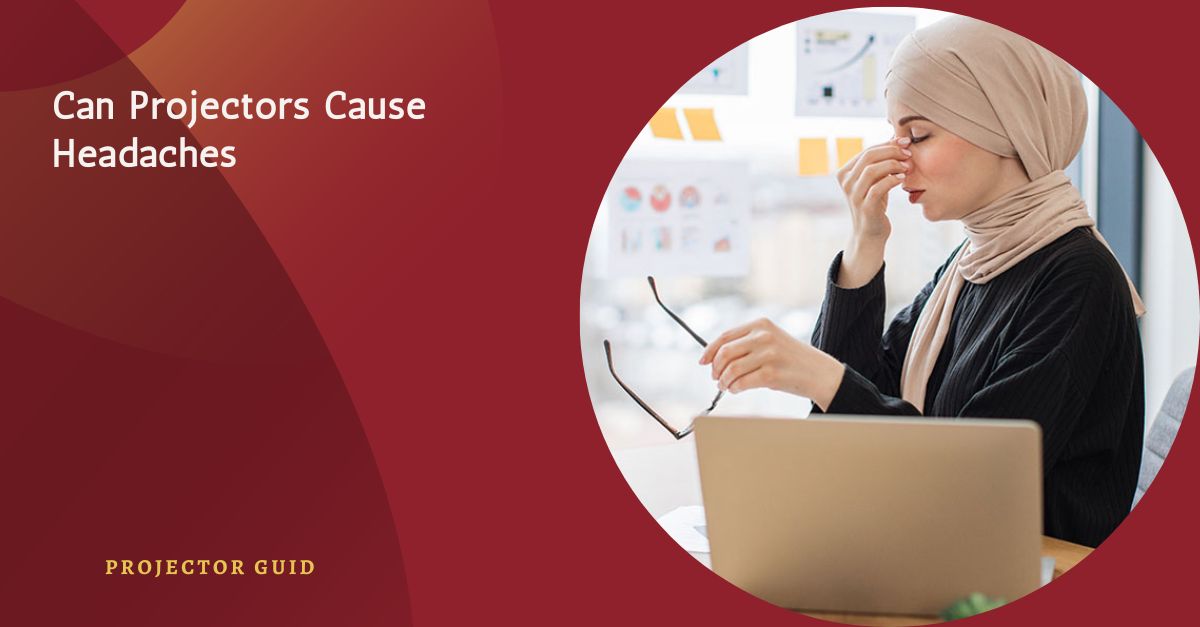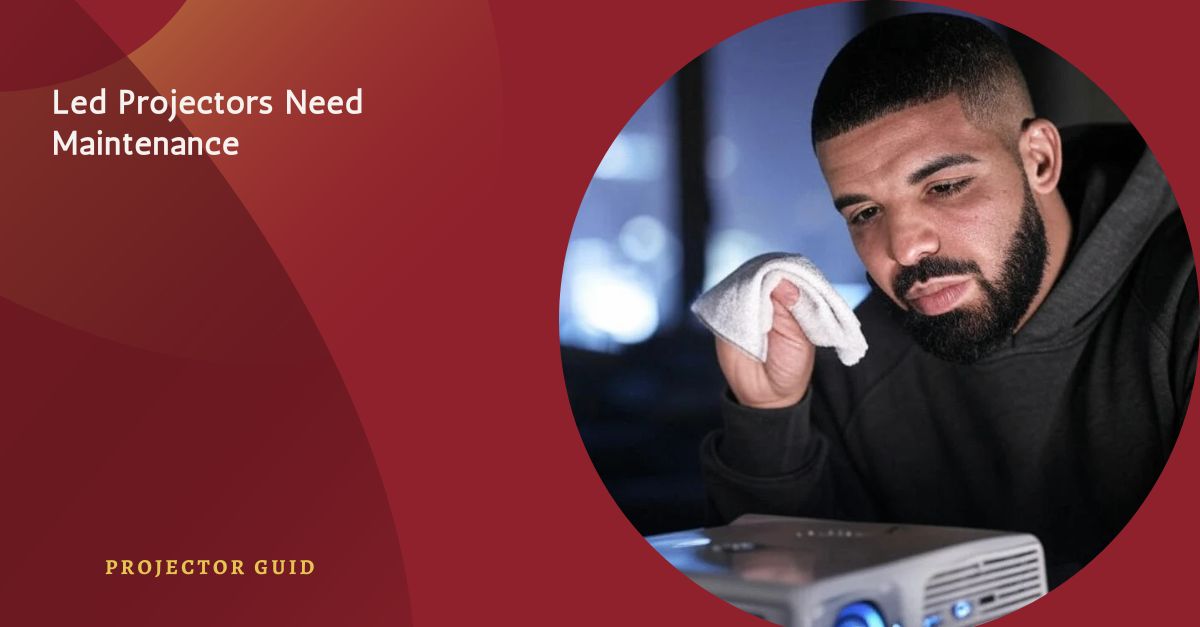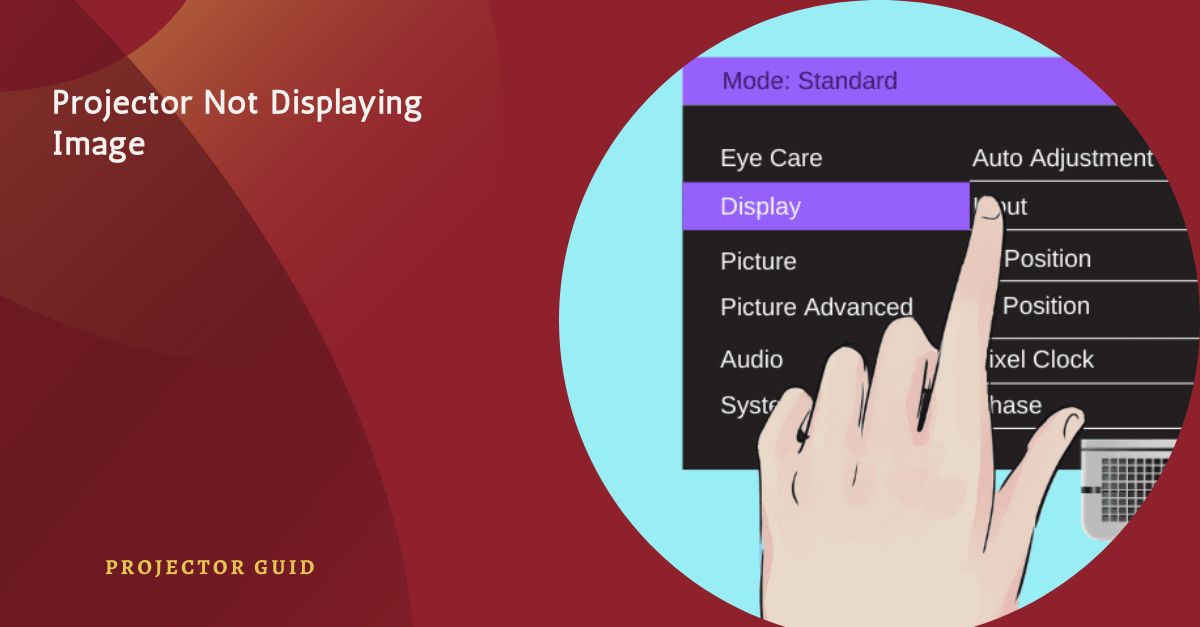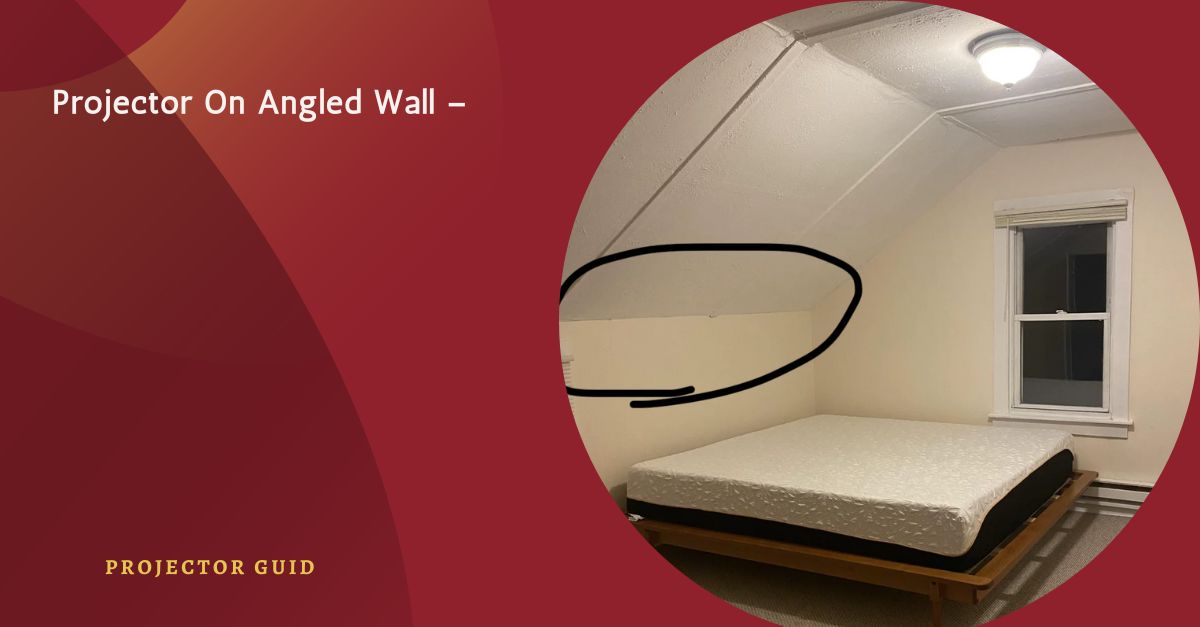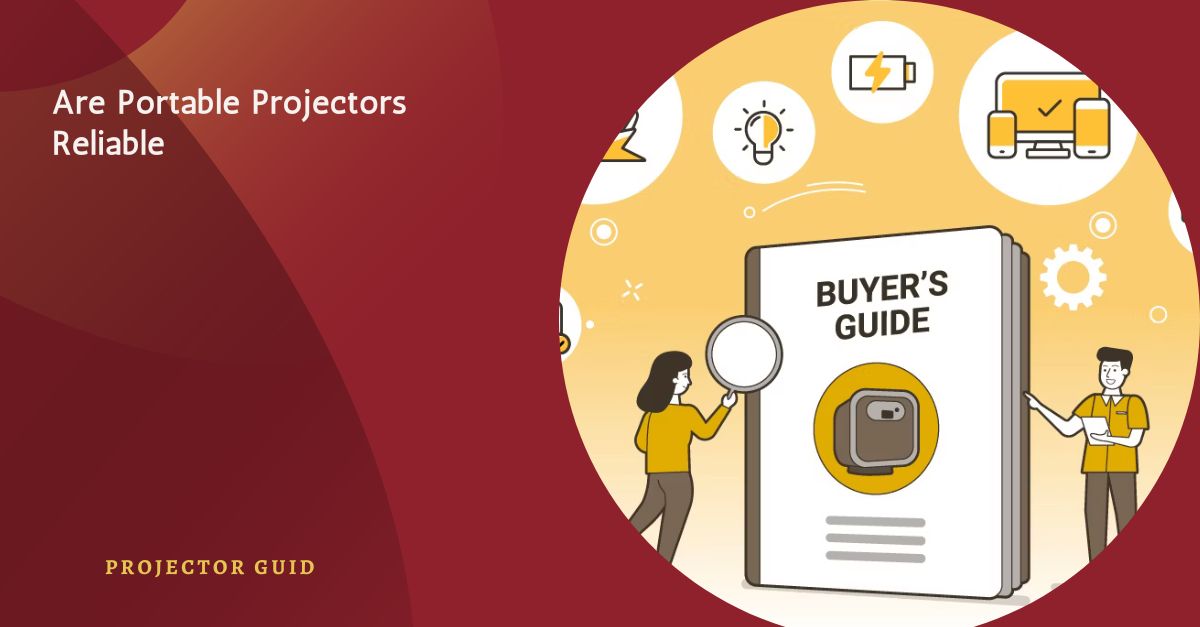I’ve been using a projector at home, and after a few weeks, I noticed that I was getting headaches. It usually happens after watching for a long time in a dark room. I wondered, “Can projectors cause headaches” and realized the bright light might be the problem. Lowering the brightness helped, but I still get headaches if I watch for too long without a break.
Some people get headaches from using a projector due to eye strain, no matter the settings. The size of the screen and brightness can be the cause, especially with DLP or LCD projectors. If you’re wondering, “Can projectors cause headaches” it’s often because the brightness is too high or the image flickers.
We’ll answer the question, “Can projectors cause headaches” by looking at how things like brightness and screen size might be causing problems. You’ll also get some easy tips to make your projector more comfortable.
Can Projectors Cause Headaches?
Sometimes, people get headaches from using a projector, and you might wonder, “Can projectors cause headaches?” The brightness might be too high or the image could be flickering, which strains your eyes.

If you use a projector for a long time without taking breaks, it can also lead to headaches. To help prevent this, try lowering the brightness and taking regular breaks. This can make your projector experience more comfortable.
Why Do Projectors Give Me Headaches?
Headaches from using a projector can often be due to several reasons. If you’re wondering, “Can projectors cause headaches.” The answer is yes, and one reason is high brightness levels.
When the projector is too bright, it can strain your eyes, especially in dark rooms. Additionally, flickering images caused by a low refresh rate can also contribute to headaches, even if the flicker is not easily visible.
Another reason for headaches might be extended periods of viewing without breaks. Staring at the projector screen for too long can increase eye strain, leading to discomfort.
To help prevent headaches, try adjusting the brightness, ensuring a high refresh rate, and taking regular breaks to rest your eyes.
- High Brightness Levels: Excessive brightness can strain your eyes, especially in dark environments.
- Flickering Images: A low refresh rate may cause flickering that isn’t always visible but can still lead to headaches.
- Extended Viewing Time: Watching the projector for long periods without breaks increases eye strain.
What Are The Side Effects Of Projector Light?
Projector light can have several side effects, and if you’re wondering, “Can projectors cause headaches?” it’s important to know how the light might affect you.
High brightness levels can strain your eyes, especially in a dark room, leading to discomfort and possibly headaches. Long periods of bright light exposure can also cause visual fatigue and make your eyes feel tired.
Another issue with projector light is its effect on sleep. Using a bright projector screen late at night can mess with your sleep patterns, making it harder to fall asleep. To reduce these side effects, try adjusting the brightness and limiting how long you use the projector.
- Eye Strain: High brightness can cause discomfort and strain, especially in dark environments.
- Headaches: Intense or flickering light from the projector may lead to headaches.
- Visual Fatigue: Prolonged exposure to bright light can result in tired or sore eyes.
- Sleep Disruption: Bright projector screens used at night can interfere with your sleep patterns.
Is Watching A Projector Bad For Your Eyes?
If you’re wondering, “Can projectors cause headaches” the answer is yes, especially if the projector is too bright or if you watch for a long time. Bright light and flickering images can strain your eyes, leading to discomfort and headaches.
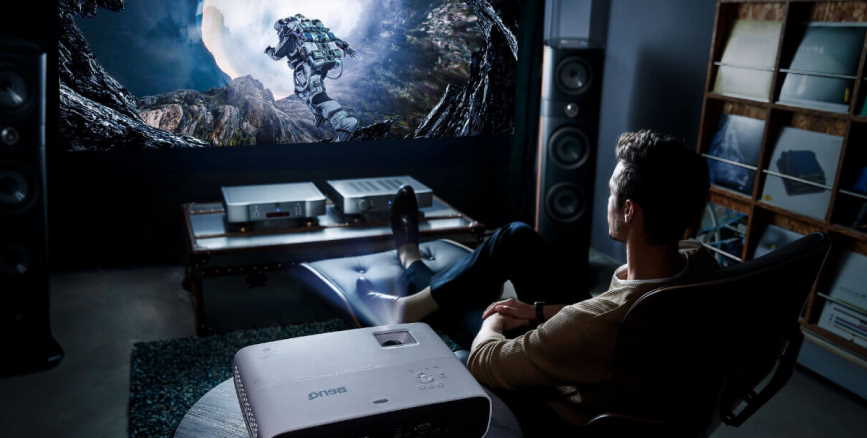
Also, using a projector for a long time can make your eyes feel tired. If you keep watching without taking breaks, it can cause eye strain. To protect your eyes and reduce headaches, try lowering the brightness, taking regular breaks, and not watching for too long at once.
Can Projectors Cause Headaches And Dizziness?
Projectors can sometimes lead to headaches, and if you’re wondering, “Can projectors cause headaches and dizziness” the answer is yes.
High brightness levels and flickering images from the projector can strain your eyes, causing discomfort and headaches. This is especially true if you watch in a dark room or use the projector for long periods.
Dizziness can also occur, particularly if the projector’s image is unstable or the refresh rate is low. If you’re experiencing dizziness, it might be related to the visual instability.
To help reduce these issues, adjust the brightness to a comfortable level, ensure the projector has a good refresh rate, and take breaks to rest your eyes.
Read: Can A Projector Overheat – Extend Your Projector’s Life!
Is Using A Projector More Harmful Than A Tv?
When asking, “Is using a projector more harmful than a TV?” it’s important to note that projectors can sometimes be harder on your eyes.
They often have very bright lights and can cause more strain, especially if you watch in a dark room. This can lead to headaches and discomfort if the projector is not adjusted correctly.
In contrast, modern TVs are usually designed to be easier on the eyes. They often have features like anti-glare screens and adjustable brightness settings that make them more comfortable to watch.
If a projector causes you more discomfort, using a TV or adjusting the projector settings might help reduce eye strain.
Does Looking At A Projector Screen Cause As Much Eye Strain?
Looking at a projector screen can indeed cause eye strain, and if you’re asking, “Does looking at a projector screen cause as much eye strain” the answer is often yes.
Projector screens usually have very bright light and a large image, which can make your eyes work harder, especially in dark rooms. This can lead to discomfort and tired eyes.
Here are some reasons why projector screens might cause eye strain:
- Bright Light: Intense brightness can strain your eyes.
- Large Screen: A big screen can make your eyes work harder to see everything.
- Flickering: Some projectors might flicker, which can be hard on your eyes.
- Close Viewing: Sitting too close to the screen can increase strain.
To help reduce eye strain, you can lower the brightness, adjust the screen size, and sit further away from the projector.
Is A Projector Or Television Better For Protecting Eyes?
When comparing a projector to a television for protecting your eyes, you might wonder, “Can projectors cause headaches” The answer is yes, and this can happen because projectors often have very bright lights and can cause more strain, especially in dark rooms. This strain can lead to headaches and discomfort.
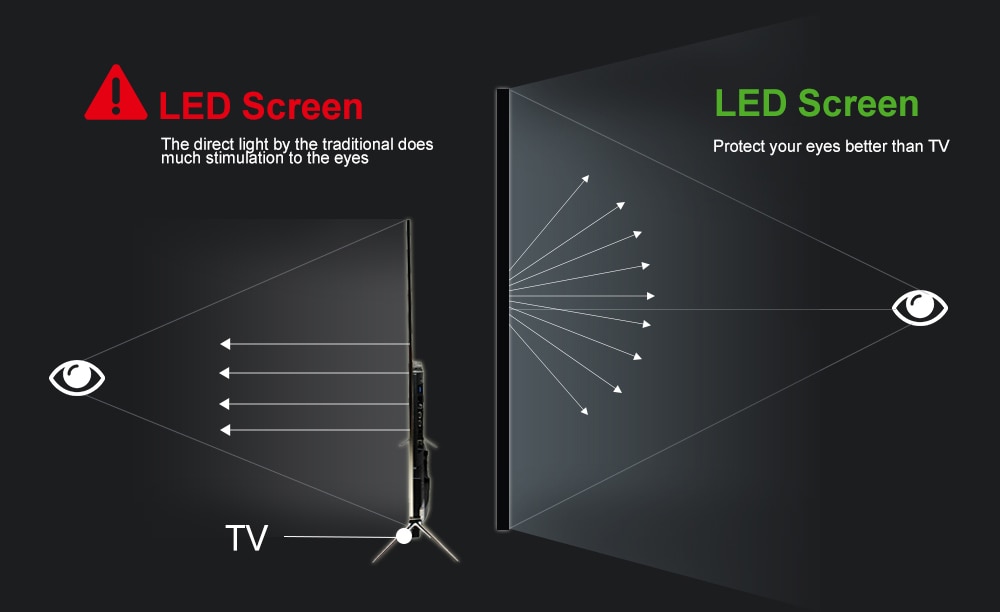
On the other hand, TVs are usually designed to be easier on the eyes. They often have features like anti-glare screens and adjustable brightness, which can help reduce eye strain. If you want to protect your eyes and avoid headaches, a TV might be a better choice than a projector.
Is Watching Things On A Projector Healthier For The Eyes?
When you ask, “Can projectors cause headaches?” it’s important to know that using a projector might not always be the best for your eyes.
Projectors often have very bright lights and can make your eyes work harder, especially if you watch in a dark room or for a long time. This can lead to headaches and make it less comfortable for your eyes.
On the other hand, TVs are generally designed to be easier on the eyes. They usually have features like adjustable brightness and screens that reduce glare.
So, if you’re looking for something healthier for your eyes, watching on a TV might be a better choice than using a projector.
Read: Can a projectors be used in daylight– Get Clear Images Even in Daylight!
Are Pwm Or Laser-Based Projectors More Likely To Cause Eye Fatigue?
If you’re wondering, “Can projectors cause headaches” it can depend on the type of projector you’re using. PWM-based projectors, which adjust brightness by flickering the light on and off very quickly, can make your eyes feel tired and lead to headaches. This flickering is often hard to see but can still cause discomfort over time.
On the other hand, laser-based projectors usually provide a steady light without flickering. This can be easier on your eyes and less likely to cause eye strain and headaches. So, if you’re worried about eye fatigue, a laser projector might be a better choice than one that uses PWM.
Can Projectors Cause Issues For Migraine Sufferers?
If you have migraines, you might ask, “Can projectors cause headaches” The answer is yes. Bright lights and flickering images from projectors can sometimes trigger migraines, especially if you watch for a long time or in a dark room.
The strong light and large screen can make your eyes work harder, which might lead to a migraine. To help prevent this, try adjusting the projector settings, taking regular breaks, and not watching for too long at once.
How To Prevent Eye Strain And Headaches From Projectors?
If you’re worried about eye strain and headaches, you might ask, “Can projectors cause headaches?” The answer is yes.
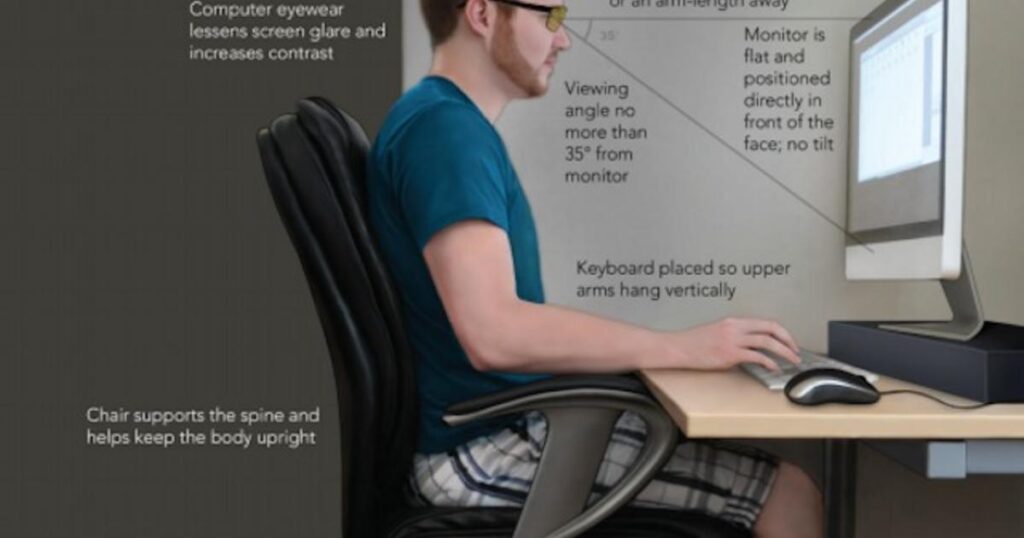
To help reduce eye strain and avoid discomfort, start by adjusting the projector’s brightness to a level that feels comfortable. Taking regular breaks is also important to give your eyes a rest and avoid watching for too long.
Make sure the projector is positioned at the right distance and angle so the image is clear and stable. By making these adjustments, you can lower the risk of headaches and have a better experience with your projector.
- Adjust Brightness: Lower the projector’s brightness to a comfortable level to reduce eye strain.
- Take Regular Breaks: Pause the viewing periodically to rest your eyes and avoid overexposure.
- Position Correctly: Ensure the projector is at an appropriate distance and angle for clear, stable images.
- Use Anti-Glare Screens: Consider using a screen that reduces glare to protect your eyes.
- Maintain Proper Lighting: Ensure there is some ambient light in the room to balance the brightness of the projector.
Do Different Types Of Projector Screens Affect Eye Strain?
Yes, different types of projector screens can affect eye strain and may make you wonder, “Can projectors cause headaches?” For example, matte screens are easier on the eyes and reduce glare, which can help prevent headaches.
Glossy screens reflect more light, leading to more eye strain and possibly headaches. High-gain screens make the image brighter but can also cause more glare.
Ambient light-rejecting screens help reduce eye strain by making the image clearer in different lighting conditions. Choosing the right screen can make watching more comfortable and help avoid headaches.
- Matte Screens: These reduce glare and are easier on your eyes, which can help prevent headaches.
- Glossy Screens: These reflect more light, which can cause more eye strain and potentially lead to headaches.
- High-Gain Screens: These make the image brighter but can also increase glare, which might cause eye strain and headaches.
- Ambient Light-Rejecting Screens: These work well in different lighting conditions and can reduce eye strain by providing a clearer image.
Read: Can Projection Be Negative – Protect Your Mental Health!
Will Newer Dlp Projectors Still Give Me The Rainbow Effect?
If you’re worried about the “rainbow effect” and asking, “Can projectors cause headaches” newer DLP projectors have improved in this area.
The rainbow effect, where you see flashes of color around bright objects, can cause eye strain and headaches. Older DLP projectors were more likely to have this issue, but newer models are better at reducing it.
Even with these improvements, the rainbow effect might not be completely gone for everyone. If you’re still sensitive to it, you might experience some discomfort. To help avoid this, look for a projector with a faster color wheel or updated technology designed to reduce the rainbow effect.
- Improved Technology: Newer DLP projectors have better technology to reduce the rainbow effect compared to older models.
- Faster Color Wheels: Many modern DLP projectors use faster color wheels to minimize the appearance of rainbow effects.
- Advanced Processing: Enhanced image processing in newer projectors helps reduce color flashes and improve visual comfort.
- Sensitivity: Despite improvements, some individuals may still be sensitive to the rainbow effect and might experience discomfort.
- Choosing the Right Model: Look for projectors with specifications that address the rainbow effect if you are particularly sensitive to it.
Can Screen Headaches And Migraines Be Prevented?
It’s important to know that there are ways to prevent screen headaches and migraines. To reduce these issues, start by adjusting the brightness and contrast of your projector to levels that are comfortable for your eyes.
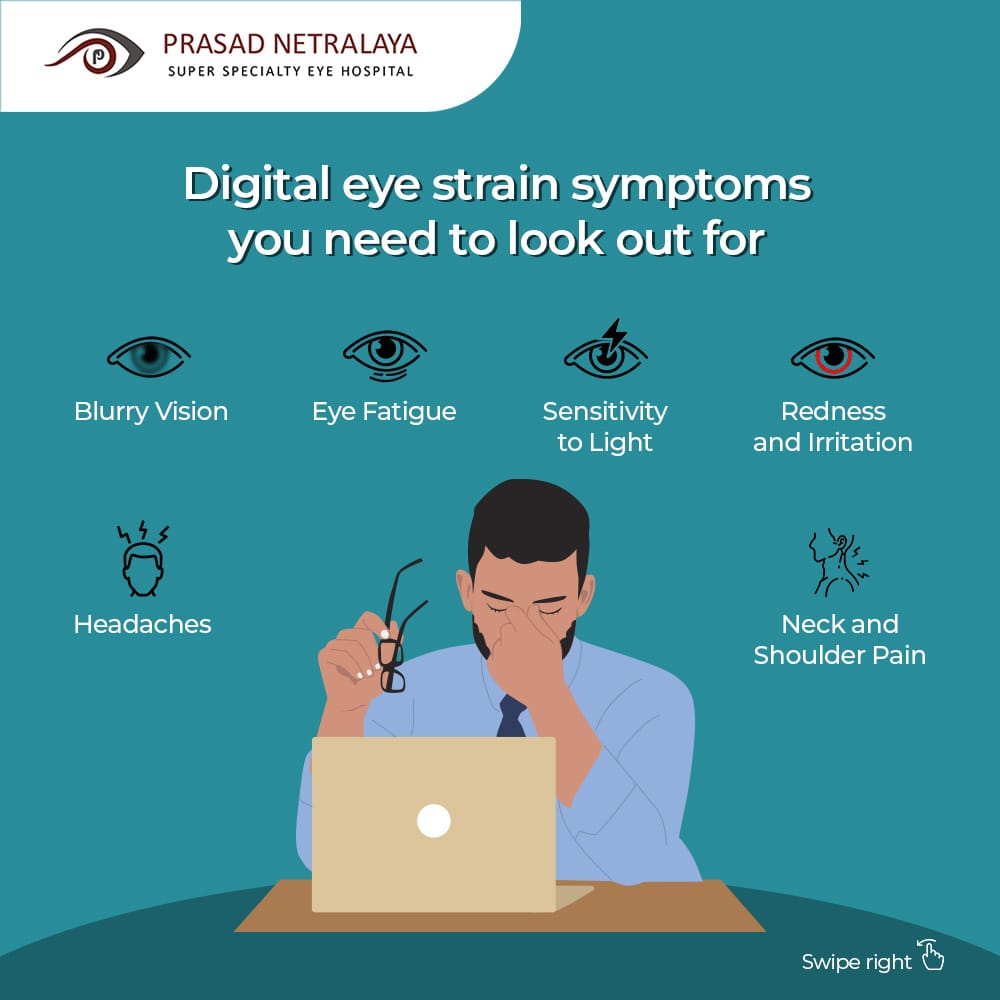
Taking regular breaks from watching can also help prevent eye strain and minimize the risk of headaches.
Additionally, maintaining the right distance from the screen and positioning it at eye level can make a big difference. Using anti-glare screens and ensuring good ambient lighting can further help reduce the likelihood of experiencing headaches and migraines. By following these practices, you can enjoy your projector while lowering the chance of discomfort.
FAQs:
Q1. How Can I Tell If My Projector Is Causing Headaches?
To see if your projector is causing headaches, check if you get headaches after using it. If you’re asking, “Can projectors cause headaches” and notice that headaches happen when you use the projector, it might be the cause. Noting these patterns can help you find out if the projector is the problem.
Q2. What Adjustments Can Help Reduce Headaches While Using a Projector?
To reduce headaches while using a projector, try lowering the brightness and contrast to levels that feel comfortable. If you’re asking, “Can projectors cause headaches” adjusting these settings can help ease eye strain. Taking breaks during long viewing sessions can also prevent headaches.
Q3. How Does Ambient Lighting Impact Headaches When Using a Projector?
Ambient lighting can impact your chances of getting headaches from using a projector. If you’re wondering, “Can projectors cause headaches” the lighting in the room can make a difference. Good lighting reduces glare and eye strain, which can help prevent headaches.
Q4. Can Prolonged Use of a Projector Lead to Long-Term Vision Problems?
Using a projector for a long time can cause eye strain and make you wonder, “Can projectors cause headaches” While it’s not likely to cause permanent vision problems, long periods of use can lead to temporary vision issues and headaches. Taking breaks and adjusting the projector settings can help protect your eyes.
Q5. Are There Specific Projector Brands or Models Less Likely to Cause Eye Strain?
Yes, some projector brands or models are easier on your eyes, which can help with the question, “Can projectors cause headaches” Projectors that have softer brightness, clearer images, and smoother movements are less likely to cause eye strain. Choosing one of these can help reduce headaches.
Q6. How Does the Size of the Projector Screen Affect Eye Fatigue?
The size of the projector screen can affect eye fatigue, which connects to “Can projectors cause headaches” A screen that is too big or too small can make your eyes work harder, causing more strain and headaches. Choosing a screen size that’s just right helps reduce eye strain and prevent headaches.
Q7. What Role Does Screen Resolution Play in Preventing Headaches?
Screen resolution can help prevent headaches. If you’re wondering, “Can projectors cause headaches” a higher resolution screen gives a clearer picture, which is easier on your eyes. Clearer images reduce eye strain and help avoid headaches.
Q8. How Can I Set Up My Projector to Minimize Headaches for Sensitive Users?
To help avoid headaches for sensitive users, set up your projector carefully. If you’re wondering, “Can projectors cause headaches” reduce the brightness and contrast, and place the projector at a good distance.
Conclusion:
In Conclusion, projectors don’t directly cause headaches, but they can lead to discomfort if not used properly. Things like too much brightness, poor image quality, and the wrong screen setup can cause eye strain and headaches.
To avoid this, adjust the brightness, pick the right screen size, and take breaks. These simple steps can help you enjoy your projector without causing headaches.
Read More:
- Does A Projector Affect Eyesight – Protect Your Eyes!
- Do Laser Projectors Have Burn-In – Before You Buy, Find Out!
- Can Projectors Get Burn-In – Extend The Life Of Your Projector!
- What Happens If You Leave A Projector On – Comprehensive Guide 2024!
- Can Projector Screens Get Wet – Know Facts to Save Your Screen!
